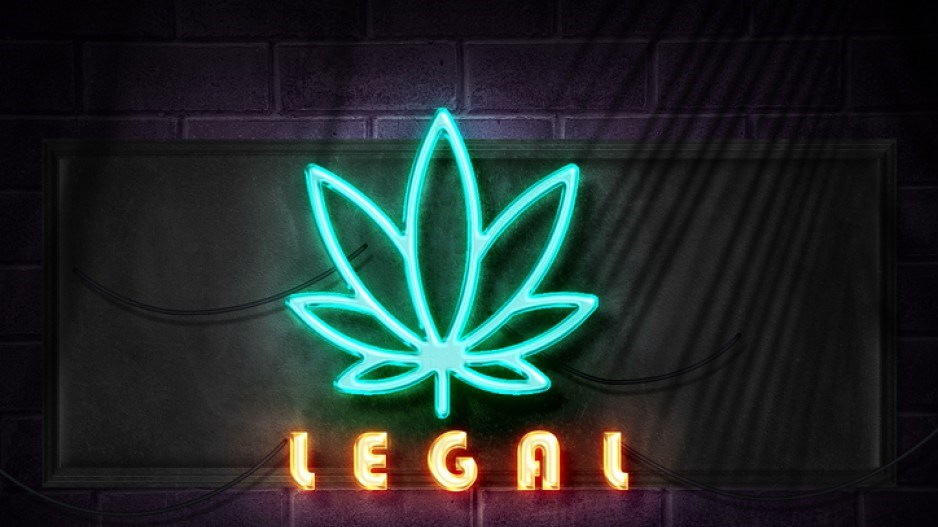Canada has had just over two and a half years of legal marijuana. The 4/20 commemorations that used to captivate large audiences in some municipalities are gone, especially now that we are being urged to stay away from each other because of the COVID-19 pandemic.
For more than a decade, Canadians voiced support for the legalization of cannabis. Those who consumed it saw it as an opportunity to enjoy it in different settings and forms. Those who did not partake regarded it as a welcome chance to raise funds that could be used to pay for other things.
Research Co. and Glacier Media asked Canadians this month about their views on this matter. Almost two-thirds (64%) agree with marijuana being legal in Canada, while 28% disagree and 7% are undecided.
This month’s national result is in line with surveys I had the opportunity to conduct since 2009. Opposition to the legal status of cannabis is higher among three important groups across the country: women (31%), Quebecers (32%) and Canadians aged 55 and over (34%).
Legal marijuana is supported by more than seven in 10 Canadians who voted for the New Democratic Party (NDP) (76%) and the Liberal Party of Canada (73%) in the 2019 federal elections. A majority of Conservative Party of Canada supporters are also in favour (52%), but more than two in five (44%) believe this is not the right course of action for Canada.
One of the questions that lingered around legalization was the emergence of “only legal” marijuana consumers in Canada. Half of Canadians (51%) told us this month that they have not used cannabis in the country at all, while 38% tried it before it was legal and 11% consumed it only after legalization.
This is a finding that has remained remarkably consistent over the past two and a half years. While only 5% of Canadians aged 55 and over felt curious enough to try marijuana for the first time after legalization, the proportion rises to 13% among those aged 35 to 54 and 14% among those aged 18 to 34.
As we ponder the outcome of the legalization of cannabis, municipal governments across Canada are pondering whether to deal with the possession of small amounts of other drugs through a de facto decriminalization, much in the same way they managed anyone smoking marijuana in a park just a few years ago.
The situation, as far as other drugs are concerned, is more complex. When we asked in September 2020, 34% of Canadians were in favour of decriminalizing all drugs for personal use, while 53% disagreed. In that same survey, the concept of establishing “safe supply” programs where alternatives to opioids can be prescribed by health professionals was endorsed by 70% of Canadians.
There is little appetite for a blanket legalization of all substances that are currently controlled or prohibited. Fewer than one in 20 Canadians are ready to legalize powder cocaine (16%), heroin (15%), ecstasy (14%), fentanyl (also 14%), crack cocaine (13%) and methamphetamine or “crystal meth” (also 13%). This is in stark contrast to how Canadians felt about the then-illegal cannabis less than a decade ago.
Still, there are some generational differences. Canadians aged 18 to 34 are significantly more likely to envision a Canada where each one of these illegal drugs can be readily available for purchase. While 24% of the country’s youngest adults support legalizing fentanyl, this view is shared by only 12% of those aged 35 to 54 and 5% of those aged 55 and over.
When we asked Canadians who have consumed cannabis since it became legal how they have acquired it, only 38% said “all” of their product was bought at a licensed retailer.
Just over one in 10 Canadian marijuana consumers (11%) preferred not to answer this question, while 31% have bought “most” or “some” of their cannabis at a licensed retailer.
This means that one in five Canadian marijuana consumers (20%) have not acquired any cannabis at a licensed retailer since October 2018. While Canada’s youngest adults are currently more in tune with the legalization of all drugs, baby boomers are more likely to be holding on to their old ways when it comes to cannabis, with 32% saying none of their marijuana came from a store.
Finally, the issue of drug testing now that marijuana is legal continues to be attractive. Just over three in five Canadians (61%) think that a company can administer these tests to employees, even if they do not operate machinery. Support climbs to 66% among men and to 71% among Canadians aged 55 and over.
Thirty months after marijuana was legalized, Canadians are mostly happy with the status quo. Few think every illegal substance should be within the reach of any adult in the country. There is also a challenge for those involved in cannabis retail: marijuana users over the age of 55 are clearly not spending as much time inside stores as their younger counterparts. •
Mario Canseco is president of Research Co.
Results are based on an online study conducted April 11-12 among 1,000 adults in Canada. The data has been statistically weighted according to census figures for age, gender and region in Canada. The margin of error, which measures sample variability, is plus or minus 3.1 percentage points, 19 times out of 20.




